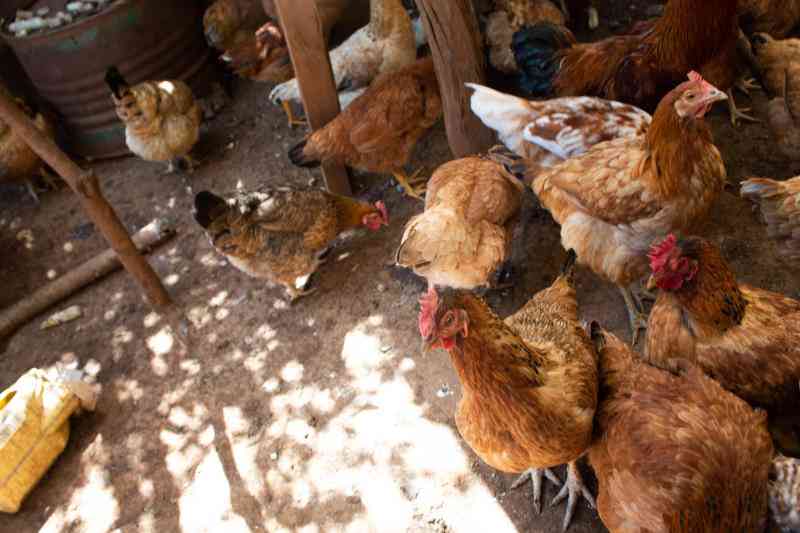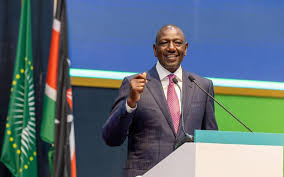By Protus Onyango
The Commission for Revenue Allocation (CRA) has warned that it may become hard for the Kenyan economy to meet Parliament’s wage bill if the move to avoid nomination of more than 70 women is not passed by the House before elections.
If women perform dismally in the elections as they have done over the decades, it will force parties to nominate enough to meet the one-third gender rule.
The chairman of the commission, Micah Cheserem is advising that Parliament should adopt the proposal to have at least a third of those elected into Parliament be women to avoid nominations that would see the number of MPs shoot up.
Bill withdrawn
Mr Cheserem warned that the consequences for not meeting the one-third gender stipulation in the Constitution would be dire. He said Kenyans will be forced to pay Sh4 billion annually or Sh20 billion for five years to finance nominated women MPs in the Senate, National and County assemblies.
The Bill to work out how best to solve the gender parity issue was withdrawn last week after MPs failed to pass it due to disagreements.
This has infuriated Mr Cheserem, who says the burden of paying extra MPs will be enormous.
“Assuming that legislators in both Houses earn Sh1 million in salaries and allowances per month and the 1,450 county representatives earn Sh300,000 per month, the total will be Sh951 million per month which translates to Sh11.1 billion annually,” Mr Cheserem said.
The figure excludes the salaries and allowances to be paid to the speakers of the two houses, who will have deputies and the 47 county assemblies, who must also be housed.
He continued, “If only men are elected, each county will be forced to nominate a woman, resulting in an additional 492 at the national and county assemblies. This will cost us Sh2.6 billion per year,” Mr Cheserem said.
Poor policies
To meet the one third threshold, the 290-member Parliament must have 117 women.
“If this fails, 70 more women will be nominated to add to the 47 women representatives. The cost for 105 more MPs will be Sh1.3 billion per year while the cost for 23 extra women senators will be Sh96 million annually,” Mr Cheserem said.
Education minister Mutula Kilonzo agrees with Mr Cheserem’s viewpoint.
Stay informed. Subscribe to our newsletter
“Mr Cheserem is dead right and he doesn’t even cover half of the challenges Kenya would face if we ignore Article 27 of the Constitution which sets the gender parameter,” Mr Mutula said.
He added, “The next parliament must have at least 117 men or women. There is no formula of producing them democratically. An unconstitutional parliament cannot perform constitutional functions. This means real trouble for the country,” Mr Mutula said.
He faulted those calling for gender parity to be disregarded and accused them of promoting constitutional impunity.
“The amendment I had earlier presented to Parliament remains the only answer. It is informed by mixed member representation principles. This means the public votes freely to elect MPs of their choice. Based on seats won, parliamentary parties use pre-election lists to nominate persons to satisfy the one-third-gender parity. This shouldn’t go beyond the stipulated numbers in the national and county assemblies,” Mr Mutula said.
But experts are faulting the Government for poor economic policies, which just end up hurting the taxpayer.
On the recent wave of labour unrest, Patrick Mutange, the chairman of the Institute of Certified Public Accountants of Kenya (ICPAK) said the Government has to adopt mechanisms to address labour unrests to avoid overloading the already burdened taxpayers.
There have been fears that the wave of unrest may spread further and lead to agitation of higher wages by other public servants, further driving the Government’s wage bill higher.
There are fears that the striking civil servants may unwittingly become the biggest stumbling block to the implementation of devolution and other provisions of the Constitution that require huge funding.
“This is a trend informed by the constitutional provisions on labour rights but if it continues, the resources allocated to push the country forward will diminish and prove costly in the long run,” Mr Mutange said.
He said a good mechanism should be put in place to solve the disputes efficiently.
International trips
He said that the country relies on donor funding and development may stagnate if every cent is spent on recurrent expenditure.
“We rely on external support for development. If they pull out, it is disastrous for us. Let us not duplicate functions in our devolved system so that we cut down on wastage of funds. It is not economically sound to have a governor and a county commissioner, both with many employees. This means we shall only be generating funds for recurrent expenditure at the expense of development,” Mr Mutange said.
John Nyoike, a Nairobi based economist said the strikes are costing the economy a lot of money.
“Look at the work not done. If the donors withdraw funding in education and health, it means the mortality and morbidity rates will soar. People will die and workers will be at home, sick and unable to work. We shall also end up with an ignorant population,” Mr Nyoike said.
He urged the Government to seal loopholes of corruption so that more money is available for use.
Mwalimu Mati, the chief executive of Mars Group echoes Mr Nyoike’s sentiments.
“The Government is now paying for lying to the public. The system has collapsed due to corruption. Finance minister Njeru Githae can’t say that the Government can’t pay Sh13.5 billion to teachers when his office uses Sh750,000 daily for entertainment.”
He added, “The Government should cut down on hospitality and advertising. It shouldn’t be spending millions to advertise in local media when it can use the Kenya gazette. It should cut down on money used to fuel its cars. Domestic and international trips plus imprests need to be reduced.”
He said Treasury has on many occasions revealed that it loses 30 per cent of revenue collected.
“If corruption is tackled, it means there will be more money. The truth is that Kenya’s budget is Sh700 billion. The Sh1.5 trillion is an exaggeration to hoodwink Kenyans so that the rest of the money goes to the pockets of a few individuals,” Mr Mati said.
 The Standard Group Plc is a
multi-media organization with investments in media platforms spanning newspaper
print operations, television, radio broadcasting, digital and online services. The
Standard Group is recognized as a leading multi-media house in Kenya with a key
influence in matters of national and international interest.
The Standard Group Plc is a
multi-media organization with investments in media platforms spanning newspaper
print operations, television, radio broadcasting, digital and online services. The
Standard Group is recognized as a leading multi-media house in Kenya with a key
influence in matters of national and international interest.
 The Standard Group Plc is a
multi-media organization with investments in media platforms spanning newspaper
print operations, television, radio broadcasting, digital and online services. The
Standard Group is recognized as a leading multi-media house in Kenya with a key
influence in matters of national and international interest.
The Standard Group Plc is a
multi-media organization with investments in media platforms spanning newspaper
print operations, television, radio broadcasting, digital and online services. The
Standard Group is recognized as a leading multi-media house in Kenya with a key
influence in matters of national and international interest.









